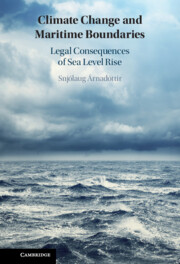According to the Intergovernmental Panel on Climate Change’s Sixth Assessment Report, sea-level rise will continue for thousands of years. Many small island States and low-lying coastal States are already experiencing sea-level rise together with landward regression of coastal areas. This raises several legal questions, such as whether States are obligated to revise existing baselines, outer limits of maritime zones and charts. This article examines the legal lacunae in the United Nations Convention on the Law of the Sea (UNCLOS) concerning the legal consequences of sea-level rise on baselines and maritime boundaries, including islands and archipelagos. It provides an overview of the work of the International Law Commission on sea-level rise in relation to international law. It traces the evolution of States’ views within the Sixth Committee between 2018 and 2024 and the UN, as well as the recent Advisory Opinions on climate change of the International Tribunal for the Law of the Sea and the International Court of Justice. It concludes by noting how the legal lacunae in UNCLOS have been clarified, leaving to be determined the next steps in implementing the convergence of States’ interpretations of UNCLOS and customary international law in favour of preservation of baselines and maritime boundaries despite the physical effects of sea-level rise on coastlines.

